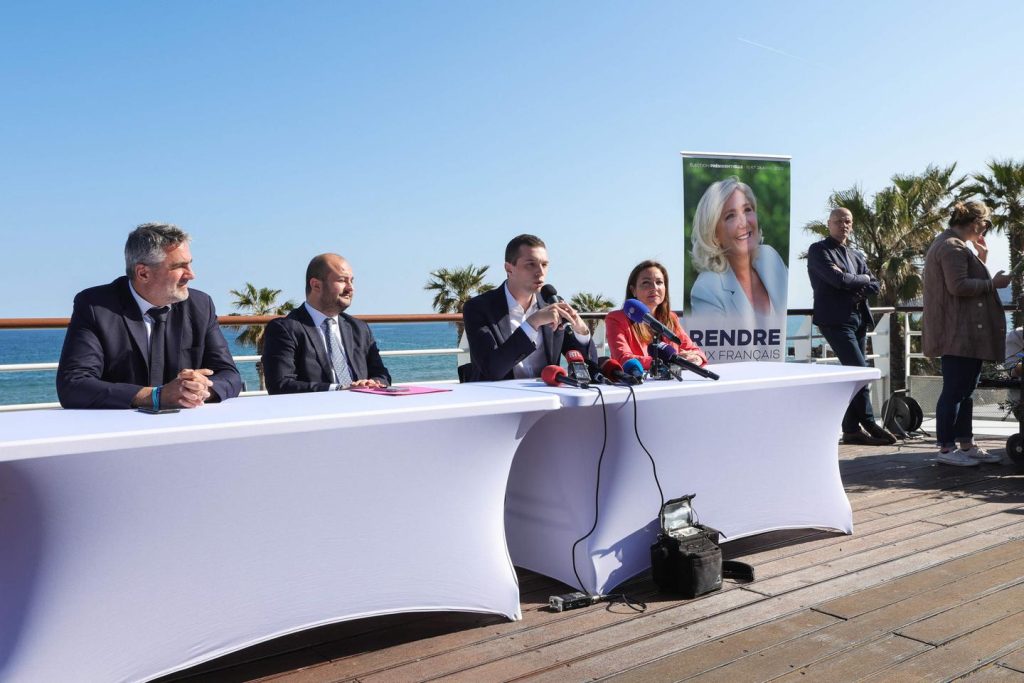David Rachline: A Mayor in the Spotlight Amidst Legal Controversies
Introduction to David Rachline and the Case
David Rachline, the mayor of Fréjus and a prominent figure in the National Rally (RN) party, has found himself at the center of legal scrutiny. Known for his rapid rise within the far-right political landscape, Rachline has been summoned to appear before the Criminal Court of Draguignan on September 30, 2023. The case against him pertains to allegations of "illegal taking of interests," a legal term that typically involves improper personal gain from public office. Specifically, the prosecution is examining the circumstances surrounding his appointment as the head of two local mixed-economy companies in Fréjus: Fréjus Development and the Management of the Port of Fréjus. These entities play significant roles in the economic and administrative functions of the city.
The investigation, initiated in December 2023, was triggered by the publication of a book titled RAPACES (Predators), authored by Camille Vigogne Le Coat, a journalist from L’Obs. The book raises questions about Rachline’s management of Fréjus, a seaside city with a population of approximately 56,000 residents. Rachline has vehemently denied the allegations, dismissing them as "pure inventions" fueled by political opponents and disgruntled former collaborators.
The Legal Allegations and Rachline’s Defense
The case against Rachline revolves around the deliberations of the municipal council concerning the two companies he was appointed to lead. At the time of these appointments, French law did not require elected officials to recuse themselves from such deliberations if they were not deemed to be in a conflict of interest. Rachline has argued that the legal framework at the time did not prohibit his involvement, and thus, the accusations are unfounded.
In a press release, Rachline expressed his confidence in the outcome of the legal proceedings, describing himself as "serene and confident." He criticized what he termed "media relentlessness" and "slanderous controversies," suggesting that the accusations are part of a broader smear campaign against him. To bolster his defense, Rachline pointed to a report by the PACA Regional Chamber of Accounts, which audited the city’s management and public contracts. According to Rachline, the audit found no evidence of criminal wrongdoing, and the report is expected to be made public in the coming weeks.
The Role of the Book RAPACES in Sparking the Investigation
The publication of RAPACES in December 2023 proved to be a catalyst for the legal investigation into Rachline’s activities. The book, written by investigative journalist Camille Vigogne Le Coat, delves into the governance of Fréjus under Rachline’s leadership, raising questions about potential mismanagement and undue personal advantages. While Rachline has dismissed the book’s claims as baseless and politically motivated, the allegations gained enough traction to prompt a formal inquiry.
The investigation has not only cast a shadow over Rachline’s political career but also raised broader questions about the governance practices within the National Rally and its elected officials. The RN party, known for its far-right ideology, has faced increasing scrutiny in recent years, particularly regarding the management of municipalities under its control. The case against Rachline has further intensified this spotlight, with critics arguing that it reflects a pattern of questionable practices within the party.
David Rachline: A Rising Star in the Far-Right Scene
David Rachline, 37, has carved out a meteoric rise within the National Rally. Beginning his political career as a municipal councilor at the age of 20, he quickly ascended the ranks of the far-right party. Notably, he served as the leader of the National Youth Front and played a key role in Marine Le Pen’s 2017 presidential campaign as her campaign director. His political ascent was further cemented in 2020 when he was re-elected as mayor of Fréjus in the first round of voting. That same year, he was appointed as the second vice-president of the National Rally, solidifying his position as one of the party’s most influential figures.
Rachline’s political trajectory is emblematic of the broader trend of young, ambitious leaders rising through the ranks of the far-right in France. His tenure as mayor of Fréjus has been marked by both praise for his efforts to revitalise the city and criticism for his governance style, which some have described as authoritarian. The current legal case against him, however, represents the most significant challenge to his political career to date.
Implications for the National Rally and Beyond
The legal proceedings against David Rachline have far-reaching implications, both for the mayor personally and for the National Rally as a whole. The RN party has long faced accusations of questionable governance practices, and the case against Rachline reintroduces these concerns into the public discourse. While Rachline’s allies have rallied around him, describing the allegations as politically motivated, the case has nonetheless cast a shadow over the party’s image.
The case also raises important questions about transparency and accountability in local governance. As the investigation unfolds, it will not only determine Rachline’s legal fate but also set a precedent for how similar cases are handled in the future. For the citizens of Fréjus, the outcome will have direct implications for the leadership of their city and the direction of its governance.
As the legal drama continues to unfold, one thing is clear: the case against David Rachline is more than just a localized political scandal. It represents a microcosm of the broader challenges faced by French democracy, where issues of governance, transparency, and accountability remain central to public debate. Whether Rachline emerges vindicated or condemned, the case will undoubtedly leave a lasting impact on both his political career and the National Rally’s standing in French politics.












